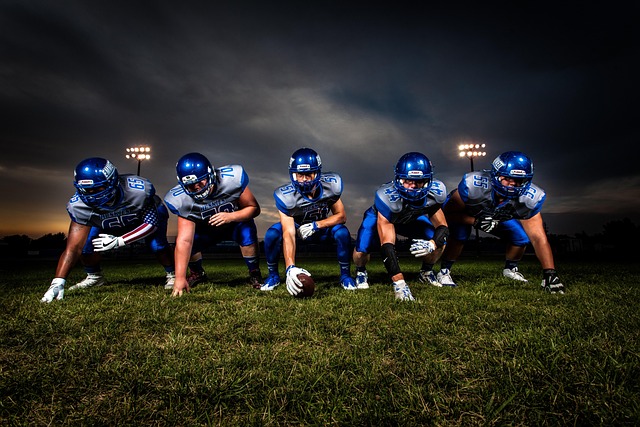After the final whistle blows and the game is over, athletes often shift their focus from physical recovery to mental rejuvenation. In the world of sports, the significance of mental recovery techniques for post-game relaxation cannot be overstated. As an athlete myself, I understand the intense pressure and adrenaline that comes with competitive sports. That’s why finding effective ways to unwind and refocus after a game is crucial for both performance and well-being.
In this article, I’ll delve into the essential strategies and techniques that athletes can incorporate into their post-game routines to promote mental recovery. From mindfulness exercises to visualization techniques, we’ll explore practical methods that can help athletes unwind, recharge, and prepare for future challenges. Join me on this journey to discover the power of mental recovery in optimizing athletic performance and overall mental health.
Understanding Mental Recovery in Sports
As an athlete, I know firsthand the importance of mental recovery after a game. It’s essential for athletes to understand how to unwind and refocus to improve their performance and overall well-being.
Why Mental Recovery Is Crucial for Athletes
I understand the significance of mental recovery for athletes. It plays a vital role in helping us recharge and prepare for future challenges on and off the field. Without proper mental recovery, athletes may experience burnout, decreased motivation, and increased risk of injuries. It’s crucial for athletes to prioritize mental recovery to maintain peak performance levels.
Impact of Mental Stress on Performance
From my experience, I can attest to the detrimental impact of mental stress on athletic performance. Mental stress can lead to decreased focus, impaired decision-making, and heightened anxiety levels. Athletes under prolonged mental stress may struggle to perform at their best and may even risk long-term mental health issues. Recognizing and addressing mental stress through effective recovery techniques is key to optimizing athletic performance.
Core Techniques for Post-Game Relaxation
After intense physical activity, mental recovery is vital to enhance performance and overall well-being. Here are some core techniques for post-game relaxation.
- Breathing Exercises and Meditation
Focusing on deep breathing exercises and meditation can help in relaxing the mind and body after a game. I find that taking slow, deep breaths while being mindful of each inhalation and exhalation helps me calm down and refocus. Meditation can also aid in reducing stress and improving mental clarity, making it an excellent technique for post-game relaxation. - Progressive Muscle Relaxation
Progressive muscle relaxation involves tensing and then releasing each muscle group in the body to promote relaxation. I often practice this technique by starting at my toes and working my way up to my head, tensing each muscle group for a few seconds before releasing the tension. This method helps in relieving physical and mental stress, allowing for a more thorough post-game relaxation experience.
Setting Up a Post-Game Relaxation Routine

After understanding the importance of mental recovery in sports, I’ll now delve into setting up a post-game relaxation routine focusing on key aspects for effective recovery.
Designing a Personalized Recovery Plan
In crafting a personalized recovery plan, I prioritize tailoring techniques to individual preferences and needs. It’s essential to experiment with various relaxation methods such as breathing exercises, meditation, or progressive muscle relaxation to identify what works best for me. By customizing my routine, I can maximize its effectiveness in calming my mind and body post-game.
Timing and Consistency in Recovery Practices
Consistency is key when it comes to post-game relaxation. I aim to establish a regular schedule for my recovery practices to ensure that I reap the full benefits of relaxation techniques. By setting aside dedicated time after each game for mental recovery, I can maintain a consistent routine that promotes stress reduction, mental clarity, and overall well-being.
The Role of Professional Guidance
Seeking help from sports psychologists can be beneficial when facing mental blocks or challenges that hinder post-game relaxation. It’s essential to recognize when individual efforts may not be sufficient to address deeper psychological issues that affect performance and well-being.
When to Seek Help from Sports Psychologists
I recommend consulting sports psychologists when experiencing persistent feelings of anxiety, lack of focus, or difficulty in managing stress effectively. It’s important to seek professional guidance if these mental hurdles start impacting your performance consistently, despite trying various relaxation techniques.
Incorporating Expert Advice into Recovery
Incorporating expert advice into your post-game recovery routine can provide valuable insights and strategies tailored to your specific needs. By working closely with sports psychologists, you can develop personalized relaxation plans that target areas of improvement, foster resilience, and optimize your mental well-being for enhanced performance.

 Chris Franconso is a distinguished contributor at Awesome Football Network, where he plays a pivotal role in delivering high-quality football content. With a deep-seated passion for the sport and extensive knowledge, Chris provides readers with thorough match previews, insightful tactical analyses, and detailed player assessments. His writing is marked by its clarity and depth, offering a comprehensive understanding of the game that caters to both casual fans and dedicated professionals.
Chris’s expertise extends beyond just reporting; he brings a nuanced perspective to football journalism that enhances the reader's experience. His commitment to presenting accurate and engaging content helps Awesome Football Network maintain its reputation as a leading source for football news and analysis. Through his work, Chris contributes to the platform’s mission of enriching the football community with relevant and timely information.
Chris Franconso is a distinguished contributor at Awesome Football Network, where he plays a pivotal role in delivering high-quality football content. With a deep-seated passion for the sport and extensive knowledge, Chris provides readers with thorough match previews, insightful tactical analyses, and detailed player assessments. His writing is marked by its clarity and depth, offering a comprehensive understanding of the game that caters to both casual fans and dedicated professionals.
Chris’s expertise extends beyond just reporting; he brings a nuanced perspective to football journalism that enhances the reader's experience. His commitment to presenting accurate and engaging content helps Awesome Football Network maintain its reputation as a leading source for football news and analysis. Through his work, Chris contributes to the platform’s mission of enriching the football community with relevant and timely information.
